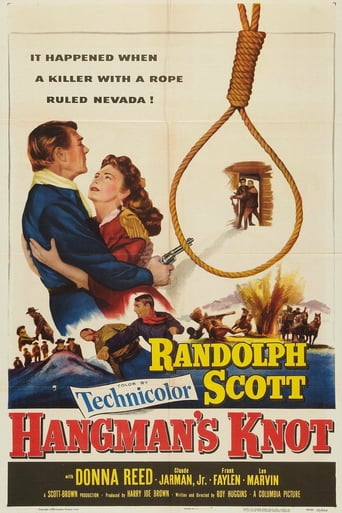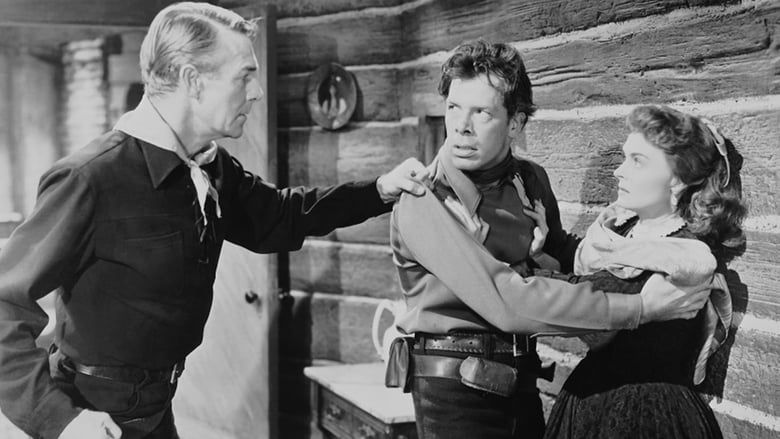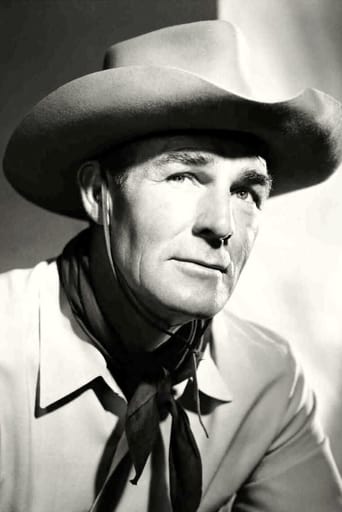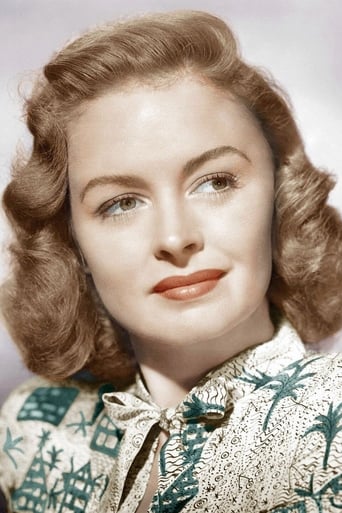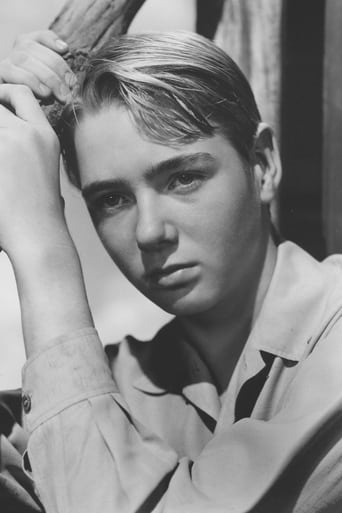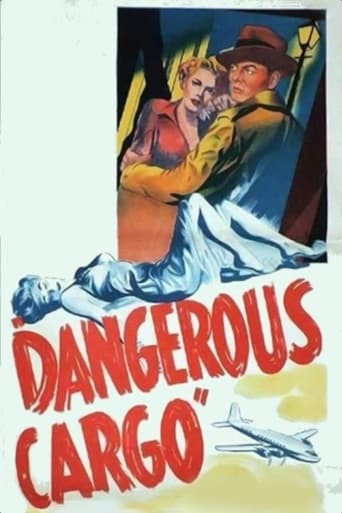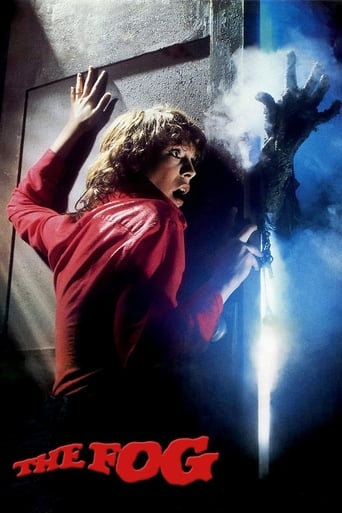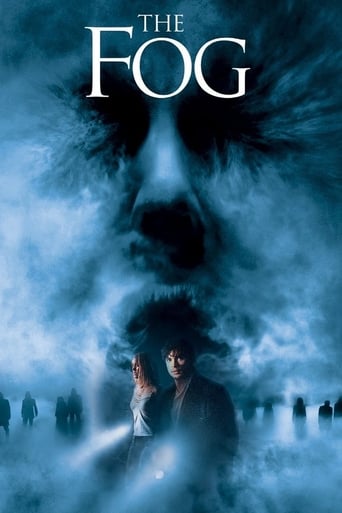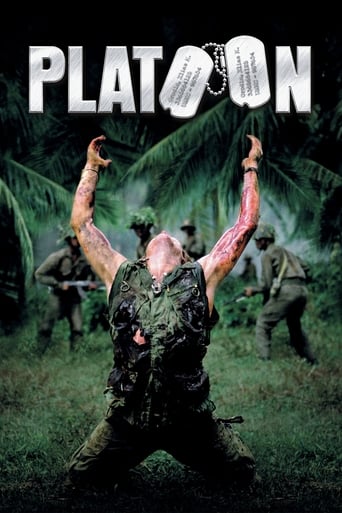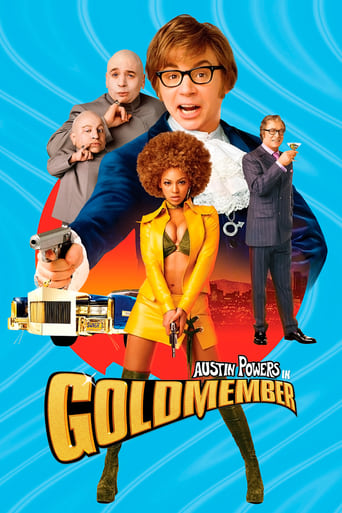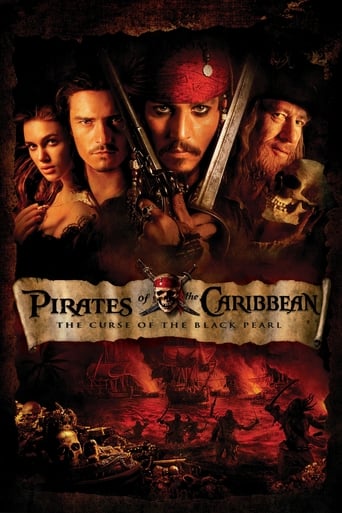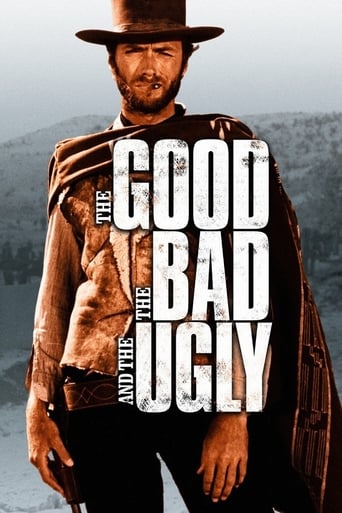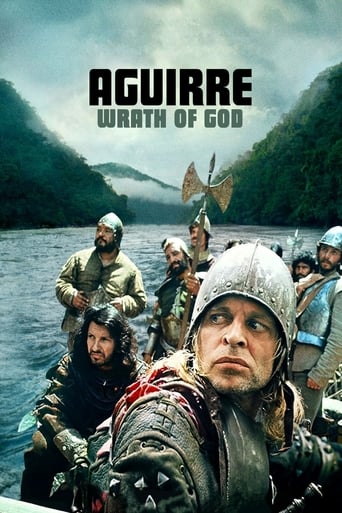Hangman's Knot (1952)
In 1865, a troop of Confederate soldiers led by Major Matt Stewart attack the wagon of gold escorted by Union cavalry and the soldiers are killed. The only wounded survivor tells that the war ended one month ago, and the group decides to take the gold and meet their liaison that knew that the war ended but did not inform the troop. The harsh Rolph Bainter kills the greedy man and the soldiers flee in his wagon driven by Major Stewart. When they meet a posse chasing them, Stewart gives wrong information to misguide the group; however, they have an accident with the wagon and lose the horses. They decide to stop a stagecoach and force the driver to transport them, but the posse returns and they are trapped in the station with the passenger. They realize that the men are not deputies and have no intention to bring them to justice but take the stolen gold.
Watch Trailer
Free Trial Channels
Cast


Similar titles
Reviews
I like the storyline of this show,it attract me so much
I gave it a 7.5 out of 10
Fun premise, good actors, bad writing. This film seemed to have potential at the beginning but it quickly devolves into a trite action film. Ultimately it's very boring.
Although I seem to have had higher expectations than I thought, the movie is super entertaining.
The first 20-minutes had me panting for breath. It's non-stop action as Scott and his Confederate detachment waylay a Union gold shipment, and where else, but in the scenic Alabama Hills. Between the wagons rolling and all the shooting, there's enough action for an entire movie, even a western. After that 20-minutes, however, the action goes indoors in a waystation, where a gang of drifters have Scott and Co. trapped. There's still a lot of gunplay, but the focus now is on character and how people react to being thrown together in tight quarters.All in all, it's a well-scripted western, as the gold takes on a certain amount of symbolism, becoming finally symbolic of Scott reconciling to the Civil War's end. It's a big cast of supporting players, generally well acted. But the real script triumph is inserting Jarman Jr. and Nolan as victims of the war on opposite sides. His family was killed by Sherman's march through Georgia, while her son was lost to the rebs. Jarman's youthfully innocent appearance is almost striking in contrast to all the rough-necks; at the same time, that fine actress Nolan is near mute, traumatized by her losses. That final scene between them and crusty old Clem Bevans is unusually poignant for a macho western.Of course, Scott is Scott, rock solid throughout, while Marvin delivers his wild card with the kind of brutal clarity he was so good at. My only complaint is with the gunfight staging around the waystation. It's poorly done, especially when Scott rescues buddy Faylen from the hangman's knot. Director-scripter Huggins was an excellent idea man, but I can see why he directed only this one theatre feature. Anyway, it's a character-driven oater that should please the most demanding Scott fan.(In passing—some shots of the burning roof plus the rain storm suggest the producers were considering a 3-D release. After all, 1953 was the big year for that short-lived process.)
Although much admired in its day, "Hangman's Knot" (1952), is not one of my favorite Scott-Brown westerns. Critics love screenplays which preserve the Greek unities of time, place and plot, but, frankly, Scott and his comrades were holed up in the stage station for so long that I got tired of waiting for them to break out. Especially as many, if not all the characters, are compounded of the old, overly familiar clichés; e.g. nurse devoted to duty (Donna Reed), soldier doing his best to balance conflicting loyalties (Scott), untried youth overcoming scruples (Claude Jarman, Jr.), shoot first and always no-account (Lee Marvin), white man selling out to the Indians (Richard Denning), spry old gent bursting with philosophy (Clem Bevans), and the lust for gold making fiends of most all (Ray Teal and company). On the other hand, this is the only big-screen effort directed by writer-producer Roy Huggins, so it has curiosity appeal.
Randolph Scott leads a group of Confederate raiders who rob a gold shipment and kill the Union Cavalry escort. Before one of them dies though, he informs the group that the Civil War's been over for a few weeks. They're outlaws now.That fact is brought home when a group of "deputies" lead by Ray Teal and Guinn Williams go out hunting the Confederates. They're not law officers in fact, but raiders looking to steal the gold and kill Scott and his crew. Scott and his crew take shelter in a stagecoach station and the fun begins.Everybody's in conflict here. Randolph Scott has eyes for stage passenger Donna Reed and her fiancée Richard Denning doesn't like it. Lee Marvin, who's one of Scott's men, also has eyes for Reed and willing to take a direct approach. The folks who run the station, Clem Bevans and Jeanette Nolan, don't like being caught up in the shooting at their station, but don't like the Confederates in particular as their Union sympathizers and Nolan's husband and son have both been killed in the war. Even the bad guys are arguing over just what approach to take in dealing with the Confederates and none of them trust the others. All this with the two groups shooting at each other.For 81 minutes a lot of plot is packed in and it's nicely done. Very tight editing, not a word or action wasted. Randolph Scott stands rigidly as the moral centerpiece of the film. Donna Reed, a year away from her Academy Award in From Here To Eternity, does well as a former Union Army nurse going west with her fiancée Richard Denning whom she learns is not all he seems. Lee Marvin gives a harbinger of things to come with his portrayal of a man quite ready and eager to become an outlaw.One of Randolph Scott's best westerns.
It's not a complex story either physically or morally but it's not a simple-minded Western as Western's go. True, whenever the hero removes his hat his hair is combed and jelled, but it's not as if we had John Wayne in an oversized Stetson battling evil with a comic sidekick either.Scott was the great stone face of Westerns. He had two or three expressions, a deep voice that sounded as if he had a slight cold, and that was it. His career progressed from light-hearted roles in the 1930s, through war movies in the 40s, and into Westerns in the 50s. He retired in the early 60s after one of his best movies, "Ride the High Country," one of the richest men in Hollywood, retreated to his golf course and never gave another thought to movies. We have, too, Claude Jarmon, Jr., who made "The Yearling" and then more or less faded away. But we also have Lee Marvin in his thuggish heavy period. He's great. In every scene his pulpy oleagenous lower lip seems to droop down and keep his mouth open. He's selfish, a murderer, a rapist, and a betrayer of his word. It takes several slugs from Jarmon, Jr., to kill him and he pitches down with his limbs splayed, his most flamboyant death besides that of Liberty Valence. But then, come to think of it, it takes several slugs to kill anybody in this movie. Every shot that misses is a resounding ricochet. The story. Ex-confederates rob gold from ex-Yankees and are chased by a band of money-hungry brigands. The ex-Rebs take a couple of hostages and hole up in a stagecoach stop surrounded by murderous goons. The core of the plot involves the interaction of a dozen or so people, divided into initially conflicting groups, having to come to terms with one another's real selves. For instance, Donna Reed, who looks as if she'd been raised in Iowa exclusively on a diet of applie pie a la mode, is a nurse who is almost engaged to Richard Denning, who wears a splashy vest. (You must always beware of men in the West wearing suits and loud vests.) He turns out to be a rotter and Reed falls for Scott instead and -- well, you get the picture. In some ways the most touching of these sub-plots involves Jarmon, Jr., as a young Reb who's never killed anyone, and his deepening relationship with a crusty old Yankee man and his embittered and widowed daughter who have lost their young man in the war. Okay, it's all a little mechanical, but it's the sort of thing that you wouldn't find Gene Autry mixed up in.I don't agree that this film is as good as the ones Scott made later with director Boettiger and writer Kennedy. Scott being Scott, his movies tend to be as good as their villains. Except for Lee Marvin these guys are pretty colorless. Boettiger did one of his movies with Scott, in which Marvin was the chief heavy and on display more often than he is here. There is no real comparison between the two Scott-Marvin films. Boettiger's is a lot more fun, although this one isn't bad.

